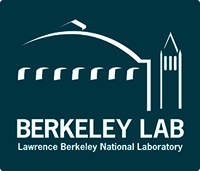Newswise — The Department of Energy has announced that Susannah Tringe and Dan Kasen, two scientists at Lawrence Berkeley National Laboratory (Berkeley Lab), will receive the Ernest Orlando Lawrence Award, one of DOE’s highest honors. Additionally, former Berkeley Lab scientist M. Zahid Hasan was also named as one of the eight recipients.
The Lawrence Award, named after Berkeley Lab’s founder, was established in 1959. It honors U.S. scientists and engineers, at mid-career, for exceptional contributions in research and development supporting the Department of Energy and its mission to advance the national, economic, and energy security of the United States.
“Dan Kasen’s and Susannah Tringe's exceptional research contributions are a tribute to Lawrence's legacy of team science in service to the nation and world," said Berkeley Lab Director Mike Witherell. “We’re proud that DOE has recognized the importance of their work and their accomplishments through the Lawrence Award.”
Susannah Tringe is a microbiologist and interim director of Berkeley Lab’s Environmental Genomics and Systems Biology Division, as well as deputy for user programs at the DOE Joint Genome Institute (JGI). She was recognized for “advances in sequence-based studies of microbial assemblies, revealing the roles of microbial communities in carbon cycling, in interactions with plants, and as drivers of methane production, nutrient cycling, greenhouse gas emissions, and water recycling.”
Tringe leads the Microbial Systems Group at the JGI, which focuses on sequence-based approaches to studying microbial community assembly, function, and dynamics. Her research interests include terrestrial carbon cycling, particularly microbial factors influencing methane fluxes at terrestrial-aquatic interfaces, and the contributions of plant microbiomes to stress resistance.
JGI is a DOE Office of Science user facility at Berkeley Lab and part of the Lab’s Biosciences Area.
Dan Kasen is a physicist in Berkeley Lab’s Nuclear Science Division focusing on theoretical and computational astrophysics, with an emphasis on supernovae, neutron star mergers, and other energetic transients. He was recognized for “pioneering contributions in multi-messenger astrophysics, including seminal work on kilonovae, r-process nucleosynthesis, white dwarfs, and Type I and II supernovae; and for leadership in the application of high-performance computing in astrophysics.”
Kasen is the lead scientist for a program called Exastar, which seeks to model astrophysical explosions and is part of DOE’s Exascale Computing Project. He also has appointments as an associate professor in the astronomy and physics departments at UC Berkeley.
Zahid Hasan was a visiting faculty scientist in Berkeley Lab’s Materials Sciences Division until recently. He was honored for “experiments using advanced spin-angle-resolved photoemission spectroscopy which led to seminal discoveries of new phases of matter and new fermionic quasiparticles.” Much of this work was performed at the Advanced Light Source, a DOE synchrotron facility at Berkeley Lab used in a wide range of scientific research.
Hasan, a physics professor at Princeton University, is a pioneer in the field of topological materials, which includes topological insulators that can conduct electricity at their surfaces and that are resilient to some defects.
The DOE Office of Science named a total of eight scientists as 2020 Lawrence Award laureates. Each winner receives a $20,000 honorarium and will receive their awards at a formal ceremony scheduled for January 19.
# # #
Founded in 1931 on the belief that the biggest scientific challenges are best addressed by teams, Lawrence Berkeley National Laboratory and its scientists have been recognized with 14 Nobel Prizes. Today, Berkeley Lab researchers develop sustainable energy and environmental solutions, create useful new materials, advance the frontiers of computing, and probe the mysteries of life, matter, and the universe. Scientists from around the world rely on the Lab’s facilities for their own discovery science. Berkeley Lab is a multiprogram national laboratory, managed by the University of California for the U.S. Department of Energy’s Office of Science.
DOE’s Office of Science is the single largest supporter of basic research in the physical sciences in the United States, and is working to address some of the most pressing challenges of our time. For more information, please visit energy.gov/science.
